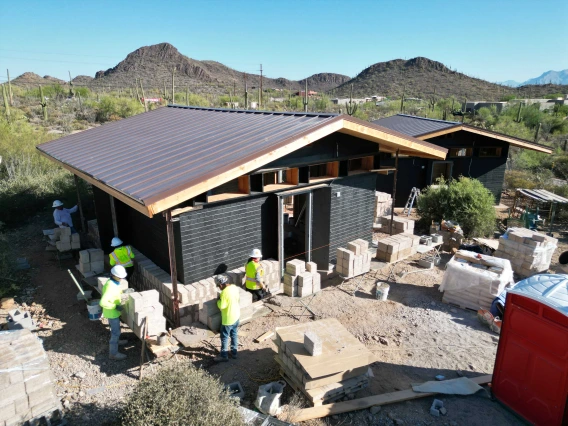Real Estate Development Lecturer James Brian Marian Facilitates Real Estate Research Council Meeting on COVID-19 Impact

Photo by Celtenator, courtesy Pixabay.

James Marian, Lecturer in Real Estate Development
James Brian Marian, an adjunct lecturer in real estate development in the College of Architecture, Planning and Landscape Architecture at the University of Arizona, recently facilitated the Pima County Real Estate Research Council's first meeting on the impacts of COVID-19. The meeting's summary was published in the June 2020 issue of TREND Report.
The meeting featured presentations by local real estate experts about the impact of COVID-19 on their businesses: Rosey Koberlein of Long Realty, Randy Agron of A.F. Sterling, Jerry Hawkins and Kim Cole of Hawkins-Cole Hospitality, Ross McCallister of McCallister Companies, Alex Hardie of Buzz Isaacson Realty and Rob Glaser of Cushman & Wakefield/PICOR.
While the pandemic initially caused transactions in residential real estate in Pima County, Arizona to drop by 30 percent, "pending contract activity has soared" since then (through June), according to Koberlein. For new home construction, however, transactions remain reduced even with "a significant uptick in both activity and buyer confidence" recently, says Agron, in part because of a shortage of trade worker shortages, resulting also in an increase in the amount of time it takes to build a home.
From a hospitality perspective, Tucson International Airport traffic is down 95 percent and occupancies in hotels dropped down below 30 percent accordingly. "Little if any turnaround is expected before October," say Hawkins and Cole, though construction continues on four local hotels.
From a commercial perspective, the pre-COVID marketplace was good, says Hardie, but "overnight, leasing activity went to zero." Meanwhile, Glaser finds the under-10,000-square feet commercial leas market the "most vulnerable" to the pandemic because 95 percent of that space is leased to small businesses, which are the most vulnerable to the economic downturn caused by the pandemic.
Read the full meeting summary in TREND Report.
Marian teaches real estate finance, manages capstone projects and student internships and helps direct CAPLA’s Master of Real Estate Development program. A 1979 graduate of the University of Arizona, he is also the founding partner and designated broker of Tucson-based Chapman Lindsey Commercial Real Estate.
This fall, he will teach CAPLA's new RED 301 Introduction to Real Estate course, one of five required courses for CAPLA's proposed Minor in Real Estate.



